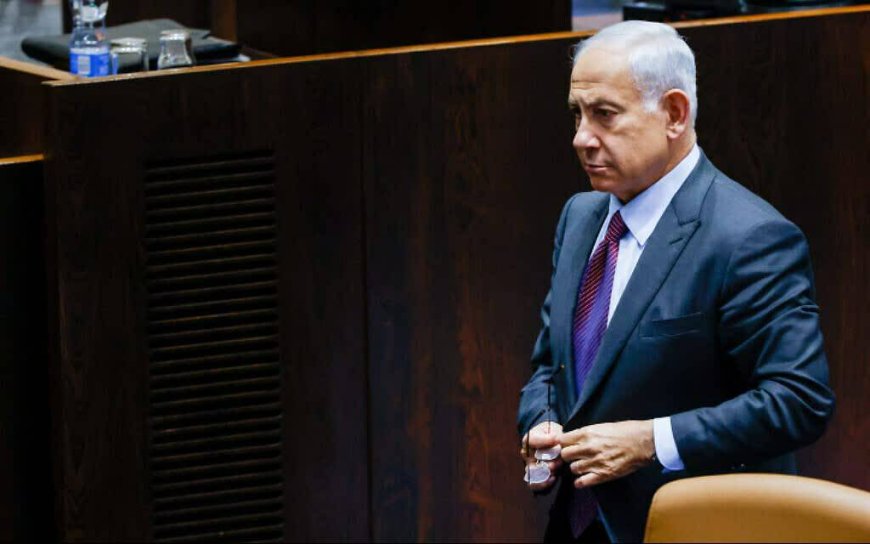The downfall: Netanyahu's predicament
The downfall: Netanyahu's predicament in dealing with the Arab youth and the Iran-led Axis of Resistance

By: H. Zaïm-Bashi
Israel's beleaguered Prime Minister, Benjamin Netanyahu, appeared to have regained his sense of balance three months after establishing his coalition cabinet. By prohibiting Jews from entering the Temple Mount on the eve of Passover, he demonstrated that he had reined in his far-right tendencies, which had caused unprecedented political turmoil in Israel.
According to Zionist security officials, the Temple Mount will remain at the epicentre of the current tensions until the end of the week, as Zionist security has been beefed up across the occupied Palestinian territories, from Jerusalem [Baitul Muqaddas] 's streets to the borders with Lebanon, Syria, and the Gaza Strip.
But why would Netanyahu make such a significant concession to the Palestinian resistance factions by banning Zionist pilgrims from the Temple Mount, particularly during the latter part of Ramadan? The answer lies in the fact that domestic conflicts are rising on all fronts, Israel's credibility worldwide is poor, and Israelis' morale has declined. Hence, Netanyahu has decided to tread more cautiously into deep political waters.
Ramadan and a dramatic rise in street tensions in Jerusalem had significantly impacted the occupied West Bank, as the Arab youth proved their ability to lead the conflict against the Zionist regime. In 2017, a massive and spontaneous demonstration erupted in Jerusalem's Arab districts, similar to a few years earlier when Israeli police erected iron barriers on the Nablus Gate stairs.
On the other hand, Netanyahu recently found the high-level coordination within the Axis of Resistance disturbing. Commander of the IRGC's Quds Force Brigadier General Esmaeil Qaani met with Mr. Haniyeh, the head of Hamas' politburo, and Sayyed Hassan Nasrallah, Secretary-General of Hezbollah, in Beirut, while Hashim Safi Al-Din, Hezbollah's No. 2, conferred with Yemen's Houthi delegation, which has recently arrived in Lebanon. In the meantime, Ziyad al-Nakhalah, the secretary-general of the Palestinian Islamic Jihad movement, travelled to Baghdad to meet with senior commanders of Iraqi pro-Iran armed factions.
To make the scenario worse for the Zionist regime, a shipment of sophisticated Iranian anti-aircraft missiles allegedly reached Syria.
In light of Hamas's relentless attempts to alter the rules of the game during Ramadan concerning the Temple Mount in the past three years, Zionist political analysts have repeatedly cautioned Netanyahu, Yoav Gallant, and the broader Israeli security establishment to act with vigilance as the end of Ramadan approaches. The Zionist regime has suffered much but has been unable to counter Hamas' threats through military measures successfully.













































